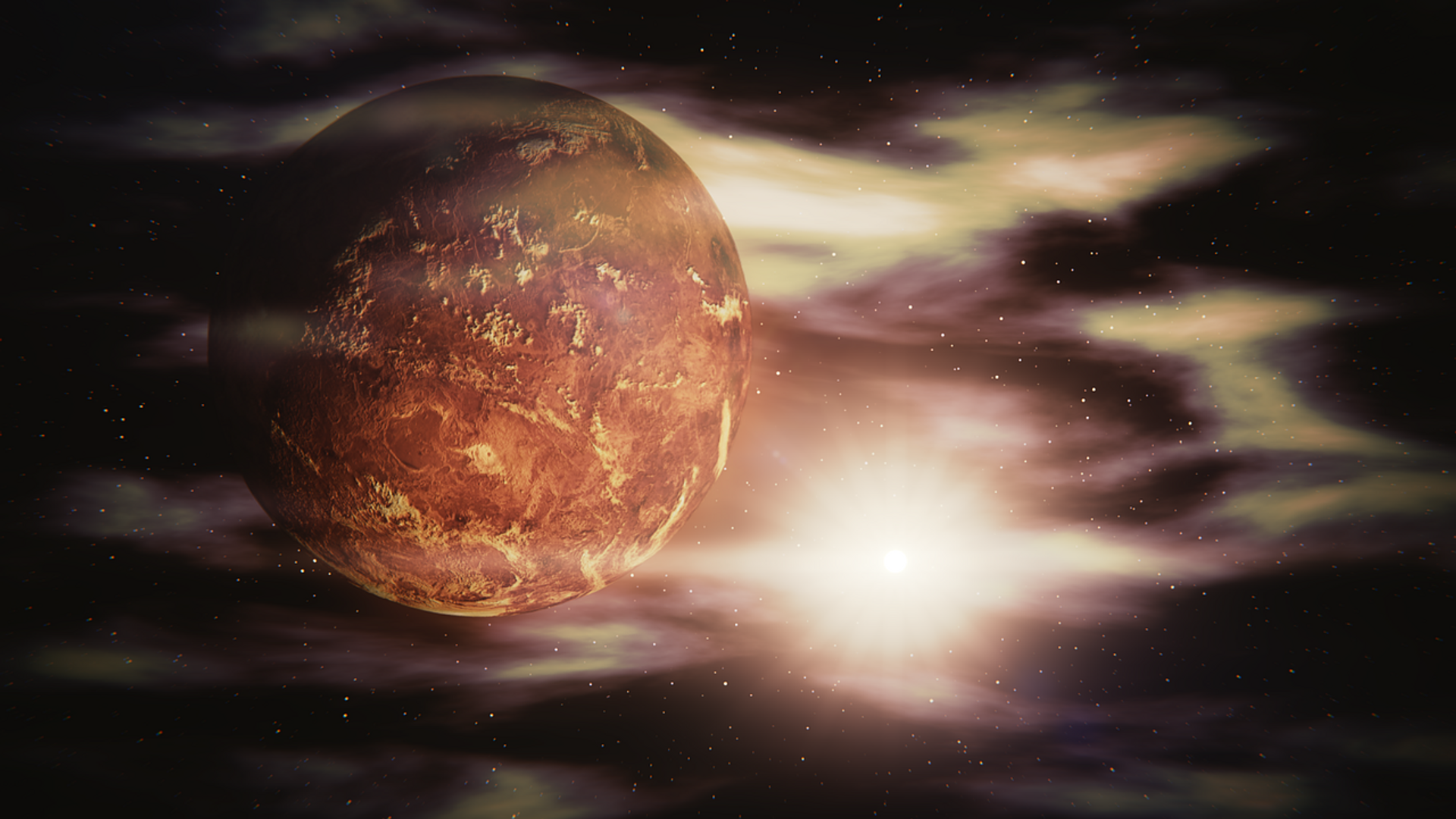https://sputnikglobe.com/20220923/venus-movement-on-opposite-side-of-sun-caught-on-video-1101151627.html
Venus' Movement on Opposite Side of Sun Caught on Video
Venus' Movement on Opposite Side of Sun Caught on Video
Sputnik International
The planet’s appearance in a video appears to be the result of being observed via an instrument designed to look at less bright cosmic phenomena, one space... 23.09.2022, Sputnik International
2022-09-23T18:52+0000
2022-09-23T18:52+0000
2022-10-19T19:41+0000
science & tech
sun
venus
movement
video
https://cdn1.img.sputnikglobe.com/img/107687/01/1076870163_0:0:1280:720_1920x0_80_0_0_e32978927bc37ea7874195b7137a734c.png
A peculiar sight of one of the objects in our Solar System transitioning from "being a morning star to an evening one" has recently been brought to the attention of social media users thanks to one dedicated scholar.This week, solar physicist Keith Strong shared a short video online that was apparently taken with a coronagraph – a telescopic attachment that allows one to see things close to the Sun by blocking the direct light emitted by our star.“WHAT ON EARTH IS THAT? There is a bright object on the right edge of the frame coming into view, i.e., moving the opposite way to the stars,” he wrote in the post.Strong, however, immediately dispelled the air of mystery, stating promptly that the object is in fact “Venus on the opposite side of the Sun from the Earth.”“It is moving from being a morning star to an evening one,” he added.As space physicist and science communicator Martin Archer explained to Newsweek, while “coronagraphs are designed to look at the very faint solar corona,” planets are “very bright and tend to saturate in the detectors,” thus usually ending up “looking much larger than they really are” and being surrounded by “lens flare effect.”"That is likely what is causing the bright light patterns around Venus in the video, with these effects being particularly strong as Venus is on the opposite side of the sun from the Earth—highly illuminated," he said.
Sputnik International
feedback@sputniknews.com
+74956456601
MIA „Rossiya Segodnya“
2022
News
en_EN
Sputnik International
feedback@sputniknews.com
+74956456601
MIA „Rossiya Segodnya“
Sputnik International
feedback@sputniknews.com
+74956456601
MIA „Rossiya Segodnya“
science & tech, sun, venus, movement, video
science & tech, sun, venus, movement, video
Venus' Movement on Opposite Side of Sun Caught on Video
18:52 GMT 23.09.2022 (Updated: 19:41 GMT 19.10.2022) The planet’s appearance in a video appears to be the result of being observed via an instrument designed to look at less bright cosmic phenomena, one space physicist told media.
A peculiar sight of one of the objects in our Solar System transitioning from "being a morning star to an evening one" has recently been brought to the attention of social media users thanks to one dedicated scholar.
This week, solar physicist Keith Strong shared a short video online that was apparently taken with a coronagraph – a telescopic attachment that allows one to see things close to the Sun by blocking the direct light emitted by our star.
“WHAT ON EARTH IS THAT? There is a bright object on the right edge of the frame coming into view, i.e., moving the opposite way to the stars,” he wrote in the post.
Strong, however, immediately dispelled the air of mystery, stating promptly that the object is in fact “Venus on the opposite side of the Sun from the Earth.”
“It is moving from being a morning star to an evening one,” he added.
As space physicist and science communicator Martin Archer explained to Newsweek, while “coronagraphs are designed to look at the very faint solar corona,” planets are “very bright and tend to saturate in the detectors,” thus usually ending up “looking much larger than they really are” and being surrounded by “lens flare effect.”
"That is likely what is causing the bright light patterns around Venus in the video, with these effects being particularly strong as Venus is on the opposite side of the sun from the Earth—highly illuminated," he said.

